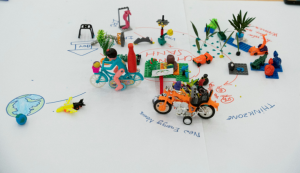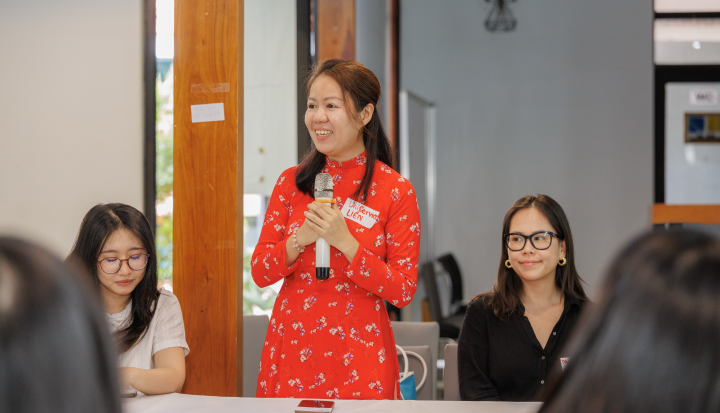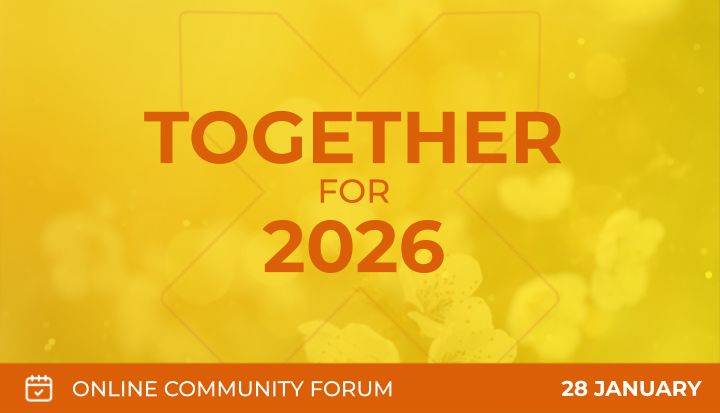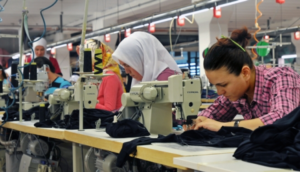Women entrepreneurs are playing an increasingly pivotal role in driving global economic growth. Their innovation, resilience, and determination continue to shape industries and communities alike. Yet despite their growing impact, women-owned small businesses often face persistent barriers – particularly when it comes to accessing finance.
Addressing these systemic challenges demands collaboration across sectors, and one powerful approach is building Learning Networks – platforms that bring together diverse stakeholders to exchange knowledge, strengthen partnerships, and co-create solutions that support women-led enterprises.
Understanding financial and non-financial barriers for women entrepreneurs
To build effective solutions, we first need to understand the unique financial and non-financial challenges women entrepreneurs face. This means taking stock of existing solutions while leveraging the invaluable feedback of entrepreneurs. Key financial barriers include lower capital demand, limited collateral, difficulty in proving financial viability, and restrictive lending terms. Additionally, women often manage businesses in low-asset sectors, putting them at a disadvantage for securing traditional loans.
Non-financial challenges include balancing business with unpaid care work, lack of connectivity with larger companies, and generic support programs that fail to address the specific needs of different business segments. Tailored support, especially for startups and micro-businesses, is crucial for meaningful impact.
Strengthening the WE Connect ecosystem through collaboration
Learning Networks like WE Connect foster collaboration among diverse stakeholders, acting as idea and resource bridges within the ecosystem. Ways this dynamic exchange takes place include:
- Connecting external stakeholders: Learning Networks connect banks, FinTech companies, business support organizations (BSOs), and investors—facilitating real-time dialogue, feedback, and alignment of objectives, in what otherwise is a highly competitive environment.
- Mapping capital needs to resources: These networks can support the development of tools that guide women entrepreneurs on what type of financing to pursue, when, and from whom—based on their business lifecycle and sector.
- Driving systems change: By promoting inclusive lending practices, shared credit assessment frameworks, and transparent data collection, Learning Networks can influence regulatory and institutional reform.
Success in Vietnam: WE Connect Learning Network
As part of its Strive Women Learning Network model – a dynamic approach to fostering entrepreneurship – CARE’s Strive Women in Vietnam, in partnership with WISE and supported by the Mastercard Center for Inclusive Growth, has hosted two WE Connect Learning Network events in a year-long series. The events bring together a dynamic group of ecosystem actors, including financial service providers, FinTech companies, business support organizations (BSOs), investors, and women entrepreneurs.
The first convening of WE Connect served as a foundational experience, raising awareness and insights on the challenges faced by women entrepreneurs. Through hands-on, collaborative dialogue and activities, the convening uncovered insights beyond conventional thinking – identifying key ecosystem bottlenecks and growth opportunities.

Building on these insights, the second WE Connect event in Ho Chi Minh City focused on practical solutions, emphasizing alternative credit scoring and flexible lending practices. With active participation from banks, fintechs, and women entrepreneurs, the event fostered innovative ideas and immediate feedback. In the room together, women entrepreneurs shared common challenges such as demonstrating profitability or accessing financing in capital-heavy sectors like renewable energy, while financial institutions such as VPBank and investors like Beacon Fund echoed their concerns, emphasizing the need for greater transparency and inclusive financial standards.
This collaborative atmosphere energized participants, not only highlighting challenges and how partnerships can break down institutional barriers but also sparking innovative ideas – turning insights into actionable solutions and driving collective progress for women entrepreneurs. By facilitating this dynamic exchange, WE Connect is paving the way for greater financial inclusion and economic opportunities for women entrepreneurs and the broader economy.
Innovative approaches to address challenges
To advance towards solutions, WE Connect identified several innovative opportunities to serve women entrepreneurs.
One of the most promising areas is alternative credit assessment by fintechs and financial service providers (FSPs). While still in the early stages of testing, these emerging methods show potential for improving access to finance by incorporating alternative data and flexible scoring criteria. However, to make these models truly inclusive, there is a need for more sex-disaggregated data and advocacy for credit scoring systems that consider business realities.
Another innovative approach is the development of a mapping system that helps women entrepreneurs identify suitable funding sources based on their specific needs, whether loan or equity, and their business timeline (short, medium or long-term). This targeted guidance helps businesses save time and resources while navigating funding landscapes.
Additionally, innovative support mechanisms are being developed – such as training methods specifically designed for women entrepreneurs, innovative production and operations technologies, and enhanced use of social media platforming aims to bridge gaps, foster inclusion, and strengthen support systems for women-led businesses.
The future of Learning Networks for women-led enterprises
To be effective, Learning Networks like WE Connect must continue to evolve to meet the diverse needs of women entrepreneurs by focusing on:
- Segment-specific support
- Tailored financial and non-financial support for different business segments, including startups, micro and nano-businesses.
- Mapping relevant support for specific types of funding size and timing needs can help women entrepreneurs save time and avoid repeating past mistakes.
- Facilitating discussions and information sharing to bridge the capital gap for the “missing middle” – women-owned enterprises that are too large for a microloan (~$2,000) but too small for a commercial bank loan (starting from $25,000).
- Scalable peer learning models
- Implementing structured mentorship programs
- Connecting early-stage women-owned small businesses with established entrepreneurs to enhance financial transparency and funding-readiness.
- Accessible knowledge infrastructure
- Offering regular learning forums, digital resource libraries, and open-access tools
- Creating a unified platform for information on women-owned businesses and support programs to make it easier for both businesses and support organizations to find and use relevant resources.
Conclusion
The evidence is clear: Learning Networks are powerful tools to build healthier ecosystems for women entrepreneurs. But they require sustained support, facilitation, and integration into broader implementation strategies.
We call on all ecosystem actors to join the high potential opportunities for systems change:
- Champion peer learning and mentorship models that connect emerging women-owned small businesses with successful women entrepreneurs.
- Invest in the development of learning platforms that include both financial and non-financial support tools.
- Advocate for inclusive policies and regulations that reflect the needs of diverse women-owned businesses.
- Promote transparency and shared standards across credit assessment and business classification frameworks.
Change begins with collective action. By working together, we can build a truly inclusive economy where women-led businesses don’t just survive – they lead the way.










